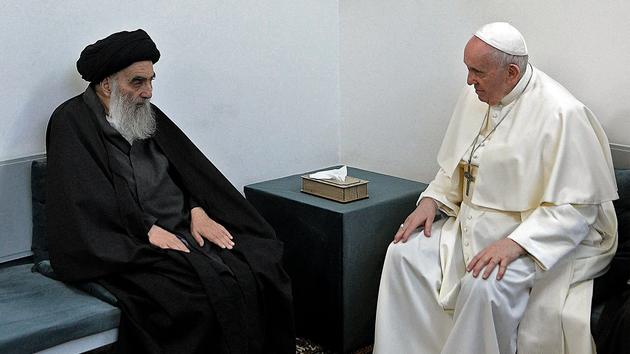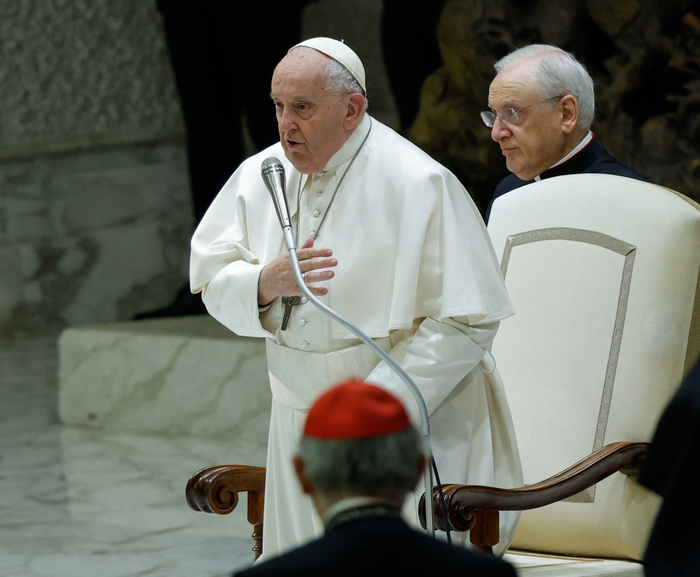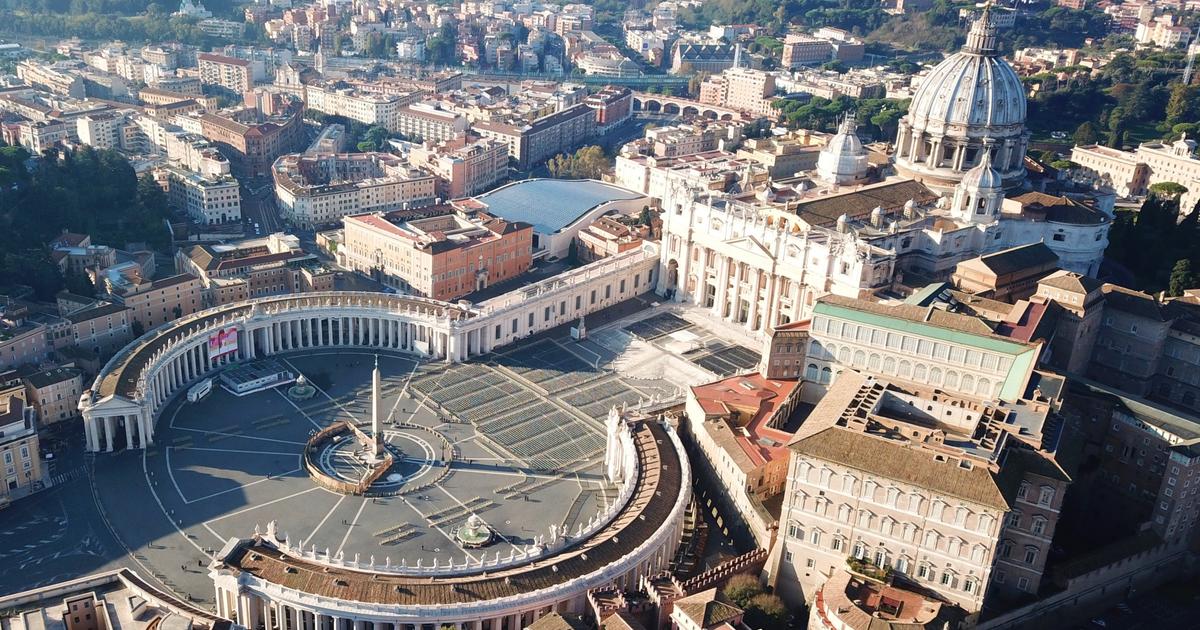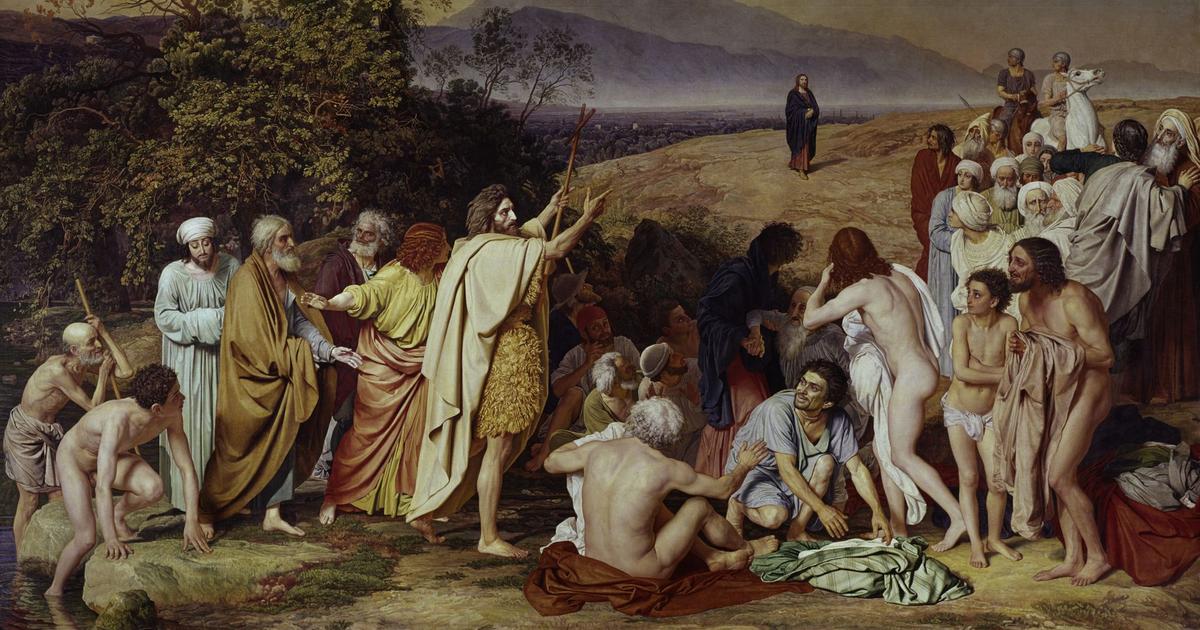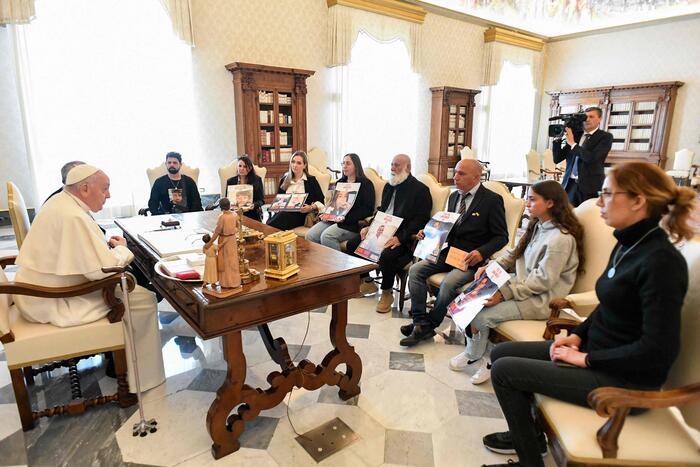Christian Makarian is an international political columnist. He is notably the author of
Choc Jésus et Mahomet
(Lattès editions, 2008) and
Genealogy of the catastrophe, Rediscovering wisdom in the face of the unforeseeable
(editions du Cerf).
The Pope's visit to Iraq, from March 5 to 8, provides essential lessons in diplomacy.
It is to be hoped that it will leave traces and that it will be able to inspire international action, so far characterized by its glaring powerlessness.
This trip goes far beyond the framework usually assigned to a religious leader, because it took place simultaneously on four fronts, the most risky of all.
Obviously, the main mission of the head of the Catholic Church was to meet the Christians of Iraq.
Persecuted, mistreated in different ways, reduced to slavery by the henchmen of the Islamic State organization in their pseudo-capital of Mosul and throughout the adjacent plain of Nineveh, they still bear the irreplaceable testimony of a Christian faith that does not does not want to go out.
In Iraq, as in Syria, Christianity is still that of its origins, crowned with thorns and inseparable from the heroic fervor of the martyrs of the first times.
In Europe, a land of freedom, churches are often empty;
in the East, they only ask to be filled (which one prevents them).
This resilience should appear to the entire West as a useful reminder of the strength of civilization born from the message of the Gospels.
The man in white from Rome was not welcomed as a Western protector, but as a defender of the original diversity.
Barbarism and savagery have certainly wreaked havoc - there were 1.5 million Christians in Iraq in the 1980s against less than 400,000 today - but they did not completely get the better of a founding identity.
To be a Christian in an Arab country is to be fundamentally Arab, and in a way much more deeply rooted than this false truth imposed by the Islamists: Islam is history and history is only Islam.
There existed in Mesopotamia an identity prior to the message of the Prophet, it had its own Semitic language, its Syriac script (which notoriously influenced the Arabic alphabet), its books and its saints.
The man in white from Rome was therefore not welcomed as a comforter with full hands or as a Western protector, but as a defender of original diversity.
There are about ten different churches in Iraq, only half of which are attached to Rome;
the other confessions (in particular the Assyrians, the Syriacs, the Armenians) assumed their theological disagreements during the first four centuries of Christianity (at the cost of their abandonment by the West) and have their own patriarchal hierarchy.
There is therefore no "
partisan interest
" for Rome in supporting these eastern branches, other than the conviction of a universal brotherhood that embraces the separated Churches now that the old intra-Christian quarrels seem completely outdated and that the persecution led by the jihadists welds all the chapels together.
Read also:
Diplomacy: what is Pope Francis playing?
It is just as strong to note that the fate of Christians also covers, through their community of destiny, that of the Yazidis, whose faith is more marked by Zoroaster than by Christ, or that of the small Judeo-Christian group of the Sabeans.
To be a Christian in the East is to defend all vulnerable groups, all authenticity, all beliefs.
François' second travel force - for this truly historic occasion - was exercised against hyper-terrorism.
Everything was done by Al Qaeda, then by Daesh, so that Iraq (and by extension Syria) becomes a land definitively closed to Westerners, moreover when they are bearers of a Christian identity.
If the terrorists had won, the Pope's trip would not have taken place;
but by his very presence, Francis has opposed the barbarians with the most scathing denial.
If the terrorists had won, the Pope's trip would not have taken place;
but by his very presence, Francis has opposed the barbarians with the most scathing denial.
Fear, threats, death did not prevent the papal displacement, even when the person of the Pope was the prey of choice for a jihadist group drunk with hatred and determined to kill.
Apart from Emmanuel Macron's whirlwind visit to Baghdad in 2020, there are very few heads of state of democratic countries to have made a trip to Iraq.
The Pope ignored the destination considered by the security services to be the most risky in the world to make a real journey in the midst of the pandemic, from the north to the south of the country;
he has once again set foot where political decision-makers do not go.
The third skill, which shows in François a great political sense under the guise of naivety, is due to the incredible sequence which took place in Najaf.
In this holy city of Shiism, where is the tomb of Caliph Ali, son-in-law and cousin of the Prophet Muhammad, a sacred person to whom more than 200 million Shiites across the Middle East claim, the sovereign pontiff met Ayatollah Ali Husseini al-Sistani.
Read also:
Who is still interested in Eastern Christians?
At the age of 90, the latter, who only receives seated people, he is so venerable and venerated, has risen twice to greet the Pope.
Beyond the symbols, we must see a great tactical intelligence in this meeting.
Al-Sistani, Iranian by birth, is a partisan of a "
quietist
"
Islam
, he affirmed the prohibition for a Muslim to kill one of his co-religionists and pledged in favor of an Iraq in which Christian minorities should to be protected in the name of the diversity of which Islam had made its strength at the time of its greatness.
In Iraq, in any case, François played a strategic card that the big international players had not imagined.
Unlike the Shiite doctrine developed by Ayatollah Khomeini, Velayat-e-Faqih, which proclaims the primacy of religion over politics, al-Sistani advocates the autonomy of the spiritual field.
This inevitably makes him a leading political voice;
he thus urged his followers to fight Daesh.
Which does not make him a holy man, far from it.
One of his most infamous fatwas called for putting men and women to death "
in the worst possible way
."
What shock Francis, the first pope to have openly defended homosexuals.
But all the finesse of Vatican diplomacy is there: knowing how to surreptitiously drive a wedge between the ferocious doctrine of the Islamic Republic of Iran and the conceptions of al-Sistani which prevail in the rest of the Shiite world.
Even if the disagreements persist on Human Rights.
In Iraq, in any case, François played a strategic card that the big international players had not imagined.
Finally, the Pope redefined in Iraq, as he had done in Burma, the mission of the universal Church whose vocation is to enter the furnace of the world.
If Catholicism remains an identity, confined to the celebration of masses and Christian rites, it will slowly die out at the rate of the massive progression of atheism which characterizes Western societies.
If, on the other hand, the Church faces the dramas and sufferings beyond the lands which were once Christian, she can give meaning to the message.
The Church of the fall has lost in advance.
Perhaps there is still a role to play for the Church of Risk?

